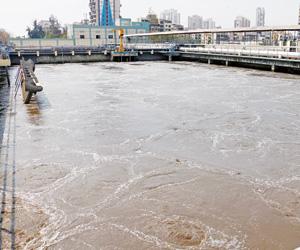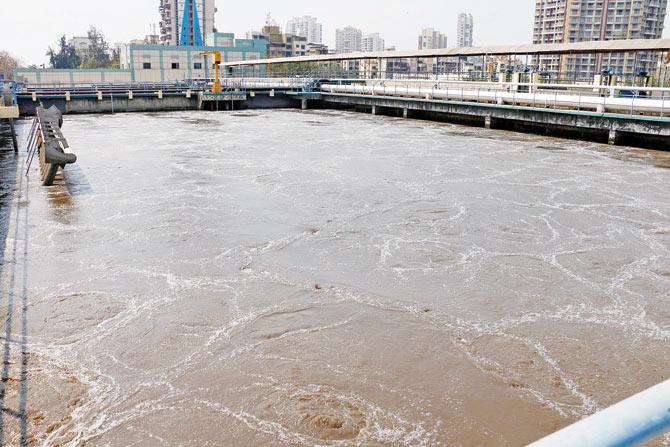Relaxed and clearer norms expected to put an end to 10-year-long delay for Rs 12,000 crore project

A recent decision by the Ministry of Environment, Forest and Climate Change (MoEF) for revising the norms of sewage disposal into the sea or any water body is expected to bring relief to Mumbai's seas as well as the Brihanmumbai Municipal Corporation (BMC). The revised norms are likely to encourage BMC's long-pending sewage disposal projects to see the light of day. Under the Mumbai Sewerage Disposal Project (MSDP)-2, the civic body had planned to construct and upgrade Sewage Treatment Plants (STP) at Colaba, Worli, Dharavi, Bandra, Bhandup, Ghatkopar and Malad for treating waste water to the level where it can be reused. According to the civic body, Mumbai generates about 2,100 million litres of sewage daily, of which half is discharged into the sea being treated. The rest is treated at the primary level at the six existing STPs.

File picture of a sewage plant in the city, for representational purposes only
ADVERTISEMENT
On October 13, the central government issued a notification about its new norms. According to it, new standards for Biochemical Dissolved Oxygen (BOD) is 20 mg/l from 100mg/l, for Total Suspended Solids (TSS) 50 mg/l from 100mg/l and for pH (acidity levels) between 6.5 to 9 TSS, refers to the dry weight of particles trapped by a filter at any water body in the treated sewage. BOD provides an index to assess the effect that discharged water has on the environment it is pumped into. Acidity levels, indicated by pH values, have to be lower to make sure aquatic life can survive. MSDP-2, for which the BMC has estimated Rs 12,000 cr expenditure was supposed to be completed 10 years ago. However, apart from Colaba, other treatment plants are still in the planning stages. The previous stringent norms would have cost the BMC unaffordable technology, making it difficult for them to go ahead with constructing the STPs.
Speaking to mid-day, Additional Municipal Commissioner (Projects), Dr Sanjay Mukherjee said, "Earlier, there was ambiguity in the standards [issued by Maharashtra Pollution Control Board (MPCB) and Central Pollution Control Board]. With the new and clear guidelines, we can now speed up the construction and upgradation of STPs. We have already appointed a consultant for the project. There are small issues like marine outfalls [pipelines for discharge] of STPs that we can sort out simultaneously." He added, "In the places where we are facing land issue for construction of plant, we'll go for multi-stack STPs, as they are cheaper. After these STPs become functional, we can use the treated sewage water for non-potable purposes."
2,100 Million litres of sewage is generated by Mumbai daily
 Subscribe today by clicking the link and stay updated with the latest news!" Click here!
Subscribe today by clicking the link and stay updated with the latest news!" Click here!







